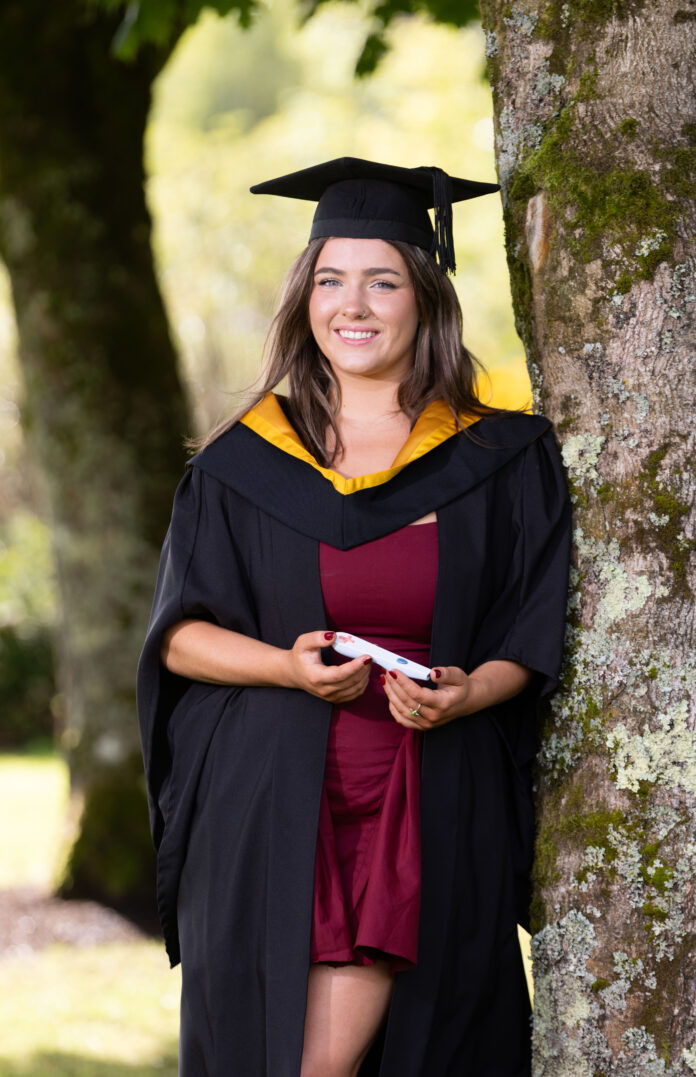
A UNIVERSITY of Limerick (UL) graduate has designed the world’s first fully accessible saliva-based pregnancy test for visually impaired women.
Leah Shanahan from Tralee, County Kerry, graduated with a degree in Product Design and Technology at UL’s autumn conferring ceremonies, making her mark with her innovative final year project.
Her bar-raising new product, ‘AMY’, is the first of its kind and delivers pregnancy test results through touch, sight, and sound using photosensor technology similar to that found in digital pregnancy tests – making it a welcome departure for people living with visual or other physical impairments.
After taking the test, a raised plus or minus symbol can be felt by touch. Users can also tap the test with their phone to open a webpage where they will view a bold red or green symbol (for positive or negative) along with large, high-contrast text for those who are partially sighted. Users can also choose to hear the result aloud.
Inspired by personal experience as a visually impaired woman, Leah said she wanted to find a solution when she realised blind and visually-impaired women were the only group excluded from finding out life-changing news from everyday pregnancy tests.
“I wanted to create a product that restores independence and dignity in this experience, using my skills in design and my understanding of accessibility to make a real difference,” she said.
Leah’s parents discovered that she was visually impaired when she was four years old.
“I was born with sight in only one eye, and it wasn’t until I was four years old and I asked my mom which eye was her ‘bad eye’ that we found out I was legally blind in one of my eyes,” she explained.
“I have poor peripheral vision on my left, and my friends laugh at me squinting to see things in the distance, but overall, it’s not much different than any other person who has poor vision.”
Despite her diagnosis, Leah doesn’t think that her visual impairment has influenced her life much at all.
“I think it’s important I don’t overstate my experience of sight loss, especially since working with the blind women I spoke with for this project and seeing how it affects every aspect of their life,” she says.
Jackie McBrearty, one of the research participants in the project, said Leah’s design “gives blind women privacy during one of the biggest moments of their lives, which could be either the worst or the best thing ever for them”.


